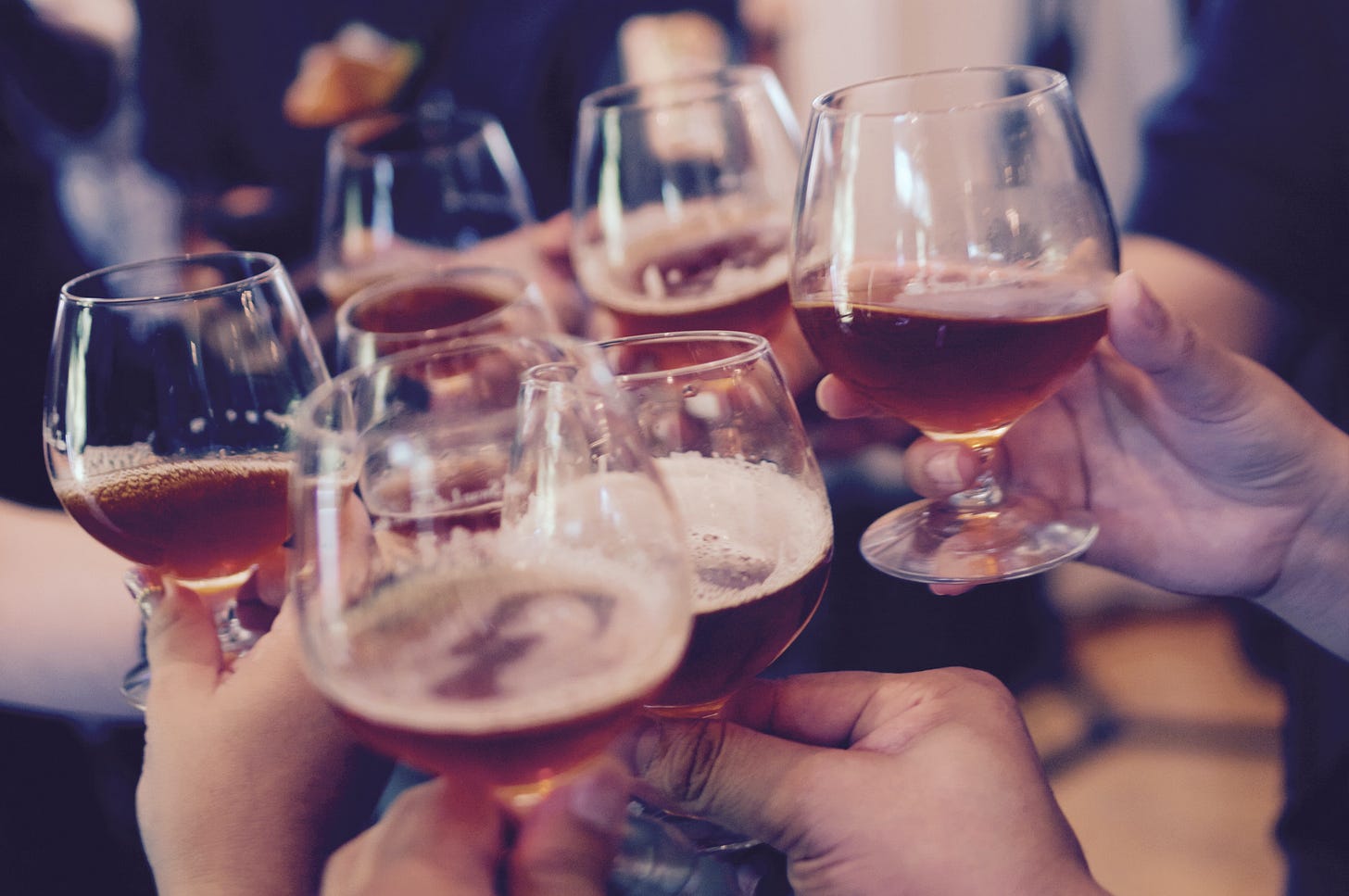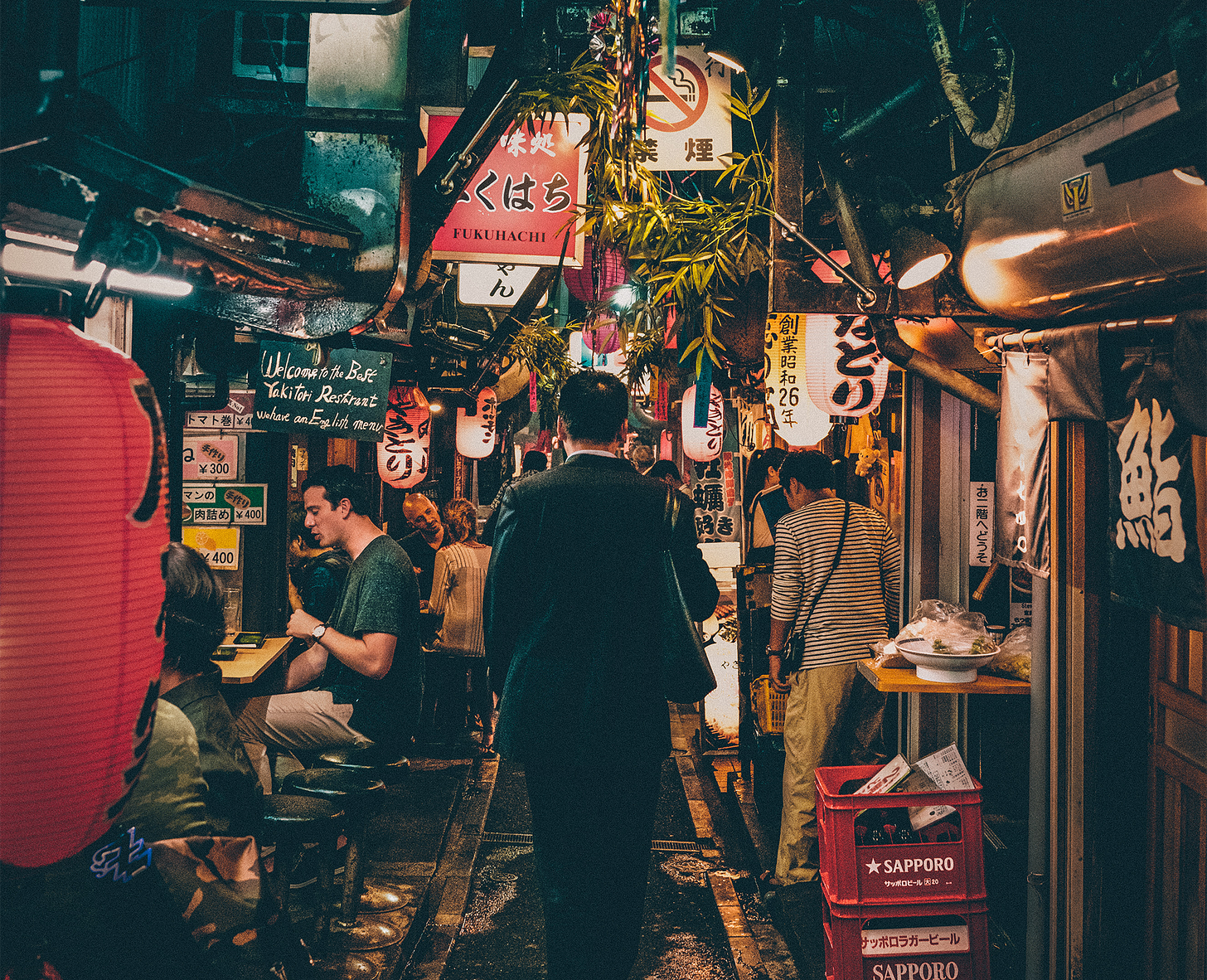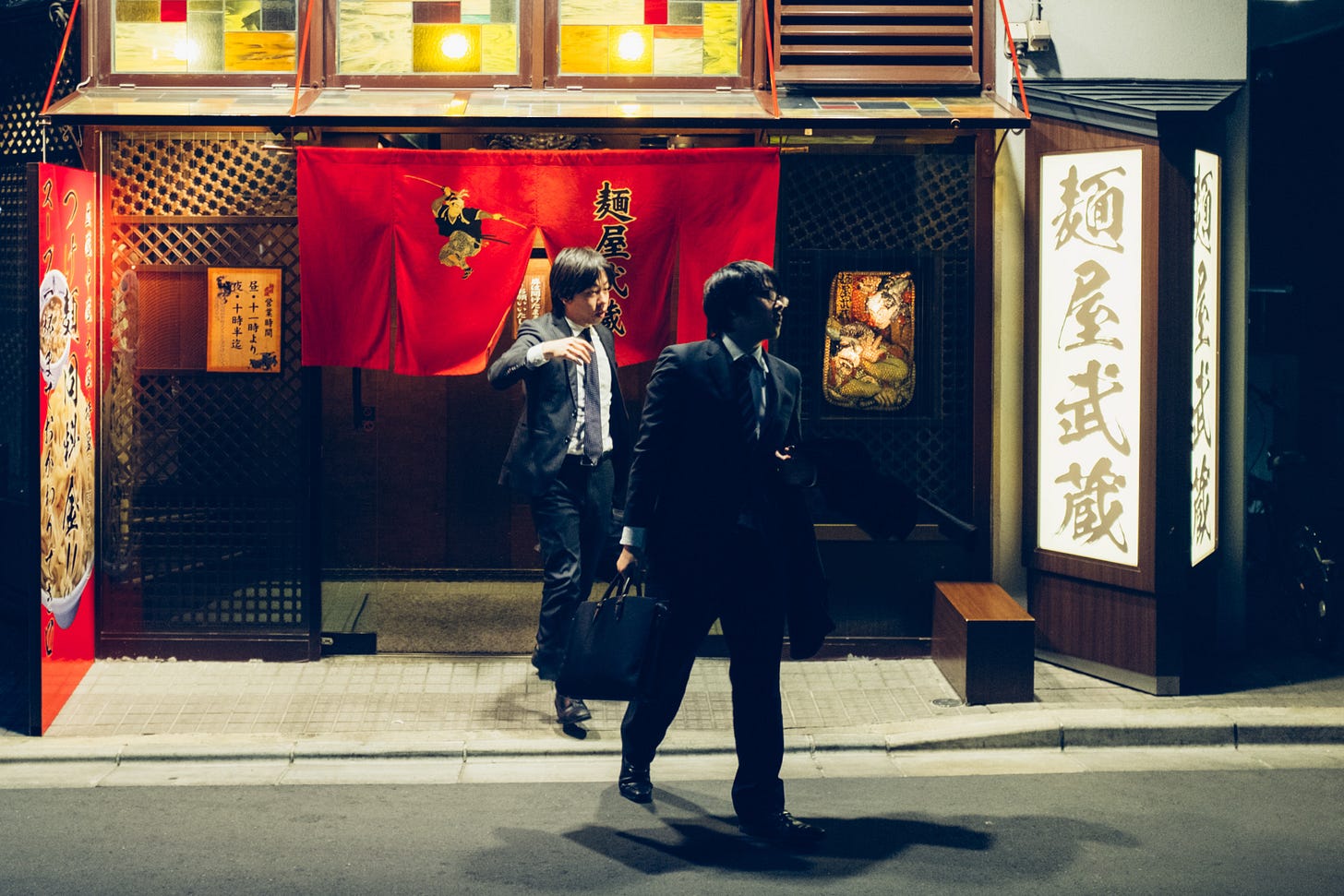Bonenkai
Forget the year, but don’t forget your manners
The end of the year approaches, and many workers around the world will have already dedicated one of their precious December evenings to a seasonal work party. Some see this practice as an important bonding ritual between employees, while others can’t imagine anything worse than having to spend even more time with their colleagues outside of work hours. In Japan especially, there’s a lot of cultural baggage associated with interacting with workmates, which will naturally spill into any work-related events, no matter how casual the bash has been billed as by the organisers.
Japan’s end of the year parties are called ‘bonenkai’ (忘年会). The three kanji (Chinese characters used in Japanese) spell out the intention of those present at these gatherings. ‘Bo’ (忘) means to forget, ‘nen’ (年) means year, and ‘kai’ (会) means gathering. Therefore, bonenkai is a party held in order to forget the last year and welcome the new one, and yes, this implies a lot of alcohol consumption. These functions can be held between friends and classmates, but the main form of bonenkai is a workplace party.
According to sociologist Sonoda Hidehiro, accounts were found in diaries of members of the imperial family that point to the origin of bonenkai, back in the Muromachi period (1336-1573). They wrote of boisterous end-of-year parties held by aristocracy, with the express intention of ‘forgetting the year’ through drinking and dancing.
(Photo by Yutacar on Unsplash)
Despite the noble beginnings of the bonenkai, for many ordinary workers the concept now seems outdated. Surveys have found that many employees harbour nothing but disdain for bonenkai, and a lot of this has to do with Japan’s corporate hierarchy. Modern Japanese work culture has contributed to feelings of animosity towards what should be a light-hearted tradition, and turned people against the very idea of bonenkai.
While most workplaces around the world are hierarchical to a degree, Japan’s traditions strictly dictate respect for elders and for those in higher positions than yourself. This can make it difficult for younger and lower ranked members of the company to question their bosses, or turn down any requests. In this way, a ‘voluntary’ work event such as bonenkai can actually be seen as strictly mandatory by those not wishing to rock the boat. Younger members of staff can also get stuck with boring tasks such as pouring drinks for others all night or tidying up post-party.
Aside from the overwhelming pressure to attend the event, workers also feel compelled to stay late into the night, even if they wish to leave. Leaving work before your seniors is seen as impolite in Japan, and at ambiguous events such as bonenkai, that straddle the line between work and play, many end up staying until the end just to be safe.
(Photo by Chris Yang on Unsplash)
Another aspect of Japanese work culture that brings stress at these events is speaking formally for the majority of the time. The Japanese language has several levels of politeness, and while a standard level is appropriate for most workplace situations, this goes out the window when senior management are around, and workers must switch to keigo (honorific language). Even if bosses try to imbue a casual atmosphere, it’s impossible for most employees to relax and let go of social mores completely when drinking and eating around their seniors.
In extreme situations, this hierarchical pressure can lead to what the Japanese call ‘pawa hara’, which is short for ‘power harassment’. This is when bosses use their higher status and authority to bully lower ranked members of staff. At work parties, power harassment can manifest itself as pressuring employees to drink more alcohol than they are comfortable with. Sinister examples of this phenomenon, such as a boss who forced his underling to drink until he threw up, has led to a word for this specific abuse of power in the Japanese lexicon, ‘aru hara’ or ‘alcohol harassment’.
For the Japanese workers who can’t stand bonenkai, it seems ‘forget the year’ is just a meaningless mantra, as they can’t really let go while they are constantly worrying about making a good impression, and enduring the various pressures thrown their way. Viewed through the lens of modern-day concepts such as work-life balance, bonenkai gatherings seem outdated and unnecessary.
(Photo by Víctor Martín on Unsplash)
But in recent years, many of those who despise bonenkai got their wish. Most parties were cancelled due to the pandemic, with 70% of companies deciding against holding an end-of-year gathering in 2021. Some workplace parties were moved online, and according to a survey conducted by Asahi, one respondent claimed this style of gathering made the atmosphere more casual, and alleviated the pressure to drink.
So as restrictions will ease up in the coming years, how will bonenkai evolve? When things go back to normal, perhaps bonenkai parties will reappear in their traditional form, to the delight of fans and the chagrin of critics. Or perhaps this chance could be taken to tweak the custom and attempt to do away with the more stress-inducing aspects.
Bonenkai isn’t just for the workplace, and can also be held between friends, family, classmates, or anyone you choose. So even if you’re a critic of the traditional work bonenkai, the event can actually be enjoyed in an individual’s preferred way. The concept of ‘drinking to forget’ is seen as depressing in the Anglosphere, but in Japan it’s a chance for a boisterous celebration, to say goodbye to the past year, and welcome a new start.




What do you think of this interview with a Japanese Muslim and his views on Islam in Japanese culture?
https://www.youtube.com/watch?v=zbOe1pDdHkA